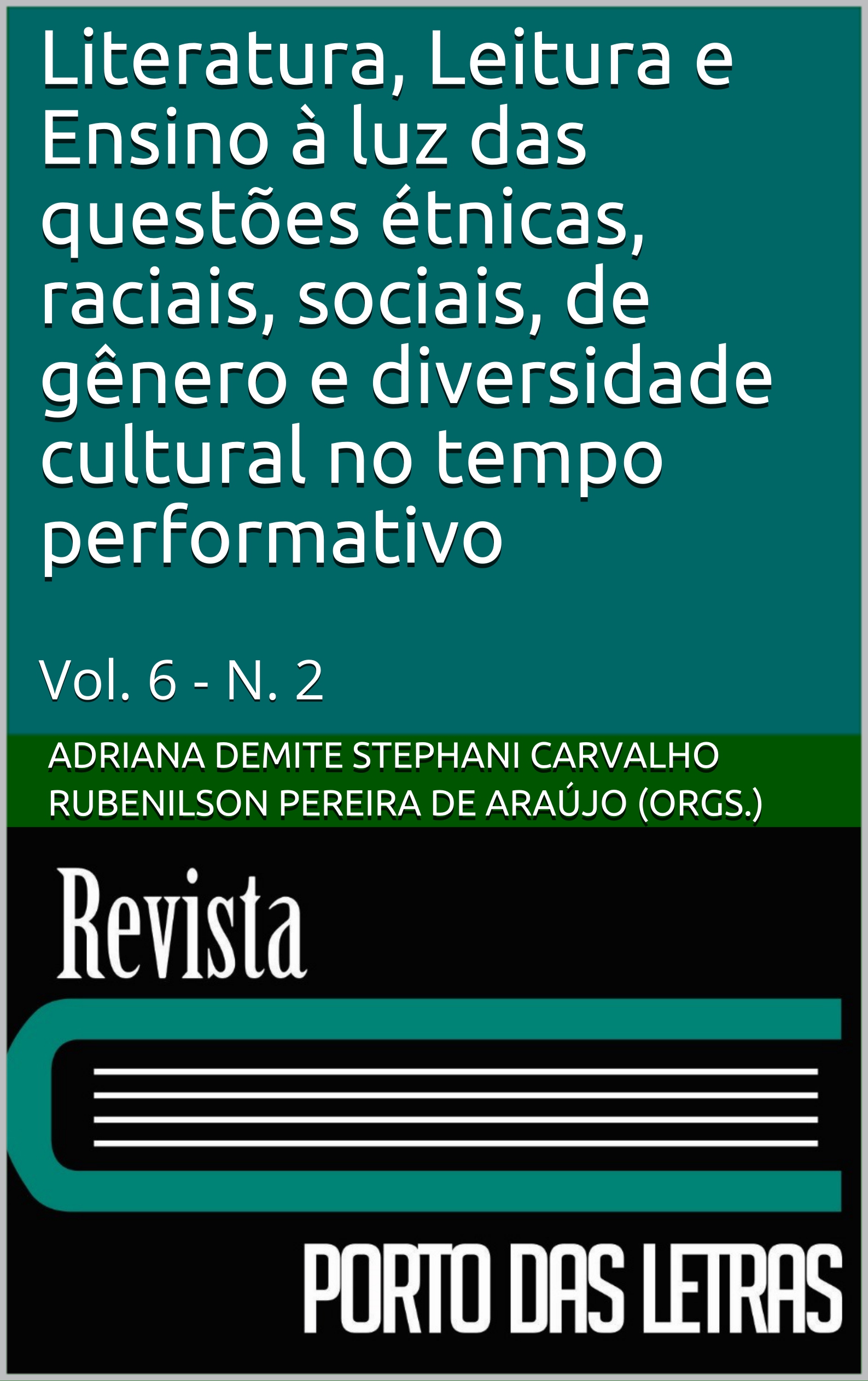Judgment, Conscience and Shylock’s Bond
Résumé
This paper aims to analyse part of the trial scene in Shakespeare’s Merchant of Venice. Even though Portia praises mercy in her speech, she shows no mercy to Shylock. Portia conducts a trial which obliges Shylock to accept the Duke’s and Antonio’s decision on his life, religion and money. In fact, Portia’s judgement points to the inflexible law in Venice and in late Renaissance, wherein class and ethnic choices were taken into account in public trials. Portia’s conscience interferes in Shylock’s judgement, suggesting that conscience and judgement are intermingled in such a way that it determines the whole trial.
Références
ADELMAN, Janet. Suffocating Mothers: fantasies of maternal origin in Shakespeare’s plays, Hamlet to Tempest. New York: Routledge, 1992.
AUERBACH, Erich. Mímesis: a representação da realidade na literatura ocidental. São Paulo: Perspectiva, 2007c.
BENSTON, Alice N. Portia, the Law, and the Tripartite Structure of the Merchant of Venice. Shakespeare Quarterly, Vol. 30, No. 3 (Summer, 1979), pp. 367-385. Folger Shakespeare Library and George Washington University.
BERGER Jr, Harry. Mercifixion in The Merchant of Venice: The Riches of Embarrassment, in Renaissance Drama, New Series, 38, 2010, pp. 3-45.
BILLELO, Thomas. Accomplished with What She Lacks: Law, Equity and Portia’s Con. In: JORDAN, Constance & CUNNINGHAM, Karen (eds.). The Law in Shakespeare. Londres: Macmillan, 2010.
BRONSTEIN, Herbert. Shakespeare, the Jews, and The Merchant of Venice. Shakespeare Quarterly, Vol. 20, No. 1 (Winter, 1969), pp. 3-10.
CRITCHLEY, Simon & MCCARTHY, Tom. Universal Shylockery: Money and Morality in "The Merchant of Venice". Diacritics, Vol. 34, No. 1 (Spring, 2004), pp. 2-17.
FALCÃO, M. S.; BUENO, R. P. M. Lavour’Arcaica: Imaginário, Tradição e Conflito em uma Representação. Porto das Letras, ISSN 2448-0819, Vol. 03, Nº 02. Jul.-dez., 2017.
FERNIE, Ewan. Shame in Shakespeare. Series Accents on Shakespeare. London: Routledge, 2002.
FREITAS, A. S. Análise Literária e Quadrinhística e transposição do Conto Assassinatos na Rua Morgue, de Edgar Allan Poe. Porto das Letras, ISSN 2448-0819, Vol. 03, Nº 02. Jul.-dez., 2017.
FOERSTER, Eckart. Kant’s Final Synthesis, Harvard UP, 2000.
GRAHAM, Cary B. Standards of Value in The Merchant of Venice. Shakespeare Quarterly, Vol. 4, No. 2 (Apr., 1953), pp. 145-151. Folger Shakespeare Library in association with George Washington University.
GREENBLAT, Stephan. Renaissance Self-Fashioning: From More to Shakespeare. Chicago: The University of Chicago Press, 1984.
GREENBLATT, Stephen. Renaissance Culture and Psychoanalysis. Standford: Standford UP, 1984.
GREENBLATT, Stephen. Shakespearean Negotiations: The Circulation of Social Energy in Renaissance England. Berkeley & Los Angeles: University of California Press, 1988.
HINELY, Jan Lawson. Bond Priorities in The Merchant of Venice. Studies in English Literature, 1500-1900, Vol. 20, No. 2, Elizabethan and Jacobean Drama (Spring, 1980), pp. 217-239.
HIRSCHFELD, Heather Anne. 'We All Expect a Gentle Answer, Jew': The Merchant of Venice and the Psychotheology of Conversion. ELH, Volume 73, Number 1, Spring 2006, pp. 61-81. Baltimore: The Johns Hopkins University Press, 2006.
JORDAN, Constance & CUNNINGHAM, Karen (eds.). The Law in Shakespeare. Londres: Macmillan, 2010.
KANT, Immanuel. Critique of Judgment. Translated with Introduction and Notes by J. H. Bernard. New York: Dover, 2005.
KAPLAN, M. Lindsay & BEVINGTON, David (eds.). The Merchant of Venice: Texts and Contexts. New York: Palgrave, 2002
KING JAMES. The Holy Bible, 1611, available in http://www.biblegateway.com/versions/King-James-Version-KJV-Bible/. Accessed: 14/07/2012.
LEWALSKI, Barbara. Biblical Allusion and Allegory in "The Merchant of Venice". Shakespeare Quarterly, Vol. 13, No. 3 (Summer, 1962), pp. 327-343 Shakespeare Library and George Washington University.
LUDWIG, C. R. Adaptação e Re-Criação de Ricardo III, de Al Pacino. Porto das Letras, ISSN 2448-0819, Vol. 03, Nº 02. Jul.-dez., 2017.
LUDWIG, C. R. Inwardness and Subjectivity in Early Renaissance. Porto das Letras, ISSN 2448-0819, Vol. 4, Nº 2. Jul.-dez. p. 134 – 164, 2020.
LUDWIG, C. R.; FERREIRA, R. DE S. Life and Fiction: Imagination and Literary Creation in Atonement. Porto das Letras, v. 5, n. 2, p. 58-77.
MAUS, Katharine Eisaman. Inwardness and Theater in the English Renaissance. Chicago e London: University of Chicago Press, 1995.
MONTAIGNE, Michel. Ensaios. Trad. de Sérgio Millet. São Paulo: Abril Cultural, 1984. 3 vols.
NATHAN, Norman. Shylock, Jacob, and God's Judgment. Shakespeare Quarterly, Vol. 1, No. 4 (Oct., 1950), pp. 255-259. Folger Shakespeare Library and George Washington University.
PATTERSON, Steve. The Bankruptcy of Homoerotic Amity in Shakespeare's Merchant of Venice. Shakespeare Quarterly, Vol. 50, No. 1 (Spring, 1999), pp. 9-32. Shakespeare Library in association with George Washington University.
ROSENFIELD, Kathrin H. L. Estética. Rio de Janeiro: Jorge Zahar Editor, 2006.
ROSS, Charles. Avoiding the issue of Fraud: 4,5 Philip & Mary c.8 (the Heiress Protection Statute), Portia and Desdemona. In: JORDAN, Constance & CUNNINGHAM, Karen (eds.). The Law in Shakespeare. Londres: Macmillan, 2010.
SECARA, Maggie. A Compendium of Common Knowledge (1558-1603): Elizabethan Commonplaces for Writers, Actors, and Re-enactors. 10th edition, 2010.
SHAKESPEARE, William. Complete Works. Londres: Wordsworth Editions, 2007.
SHAKESPEARE, William. Richard III. Edited by Antony Hammond. New York: Matheun, 1997.
SHAKESPEARE. The Merchant of Venice. Edited by Lindlay Kaplan & David Bevington. In: KAPLAN, M. Lindsay & BEVINGTON, David (eds.). The Merchant of Venice: Texts and Contexts. New York: Palgrave, 2002
SHAKESPEARE. The Merchant of Venice. Edited by John Drakakis. London: Arden, 2010.
SHAPIRO, James. Shakespeare and the Jews. New York: Columbia University Press, 1996.
SHERMAN, Anita Gilman. Disowning knowledge of Jessica, or Shylock’s scepticism. Studies in English Literature, 1500-1900, Vol. 44, No. 2, Tudor and Stuart Drama (Spring, 2004), pp. 277-295.
SOUSA, T. C. P. As Manipulações Narrativas em Atonement de Ian McEwan. Porto das Letras, ISSN 2448-0819, Vol. 02, Nº 02. Jul.-dez., 2016.
WILKINS, Leah Woods. Shylock's Pound of Flesh and Laban's Sheep. Modern Language Notes, Vol. 62, No. 1 (Jan., 1947), pp. 28-30, The Johns Hopkins University Press.
WILSON, Robert. Three Ladies of London. Accessed in September, 16, 2011, in: http://www.gutenberg.org/cache/epub/9848/pg9848.html. Printed by Roger Warde: London: 1584.
Téléchargements
Publié-e
Comment citer
Numéro
Rubrique
Licence
Os autores concordam com os termos da Declaração de Direito Autoral, que se aplicará a esta submissão caso seja publicada nesta revista (comentários ao editor podem ser incluídos a seguir).

